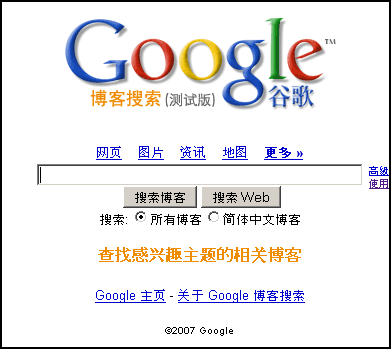FOREIGN INTERNET COMPANIES IN CHINA

Google, Facebook, Yahoo and other Internet and computer companies all wanted a piece of the growing Internet and technology market in China. Many agreed to the Chinese government’s terms on censorship in return for being allowed to operate in China. Most foreign news sites and keywords like “Tiananmen massacre,” Taiwanese independence,” “corruption” and “democracy” accessed through them are blocked. In they end were mostly elbowed out of the Chinese market by Chinese companies and many don’t bother with Chinese market except through Chinese companies.
Many Chinese like to use Google if they can gain access because it provide much more information than Chinese search engines. But Tight regulations and control of the Internet favor domestic Chinese companies rather than foreign ones. Chinese companies have also been better at creating sites that cater to Chinese tastes. U.S. Internet companies that have had success in China have largely done so by making deals with Chinese companies rather than striking out on their own.
Hiroko Tabuchi wrote in New York Times, “China has been a notoriously difficult market to crack for overseas Web companies. Google, eBay and Yahoo, not to mention social networking sites like Facebook, and Twitter, have all struggled there, because of strong domestic competition as well as government blocking and censorship. American companies also complain that the country is not a level playing field; foreign companies must operate through locally owned firms, creating a cumbersome ownership structure that limits their flexibility. And some critics say foreign companies have failed to grasp the needs of local Internet users. [Source: Hiroko Tabuchi, New York Times, May 30, 2010]
John Boudreau wrote in the San Jose Mercury News, “China's Communist government censorship rules — and behind-the-scenes moves long suspected by valley executives to help local companies edge out foreign ones — are major obstacles. Google never gained large market share in China. But it would be wrong to blame the failures of valley companies here just on government interference, those in China's Internet industry say. The intense — some would say ruthless and even at times unethical — competition in China, and the speed at which companies are started and change, creates a business climate few Westerners are prepared for. "It's like a gladiatorial, no-holds-barred fight to the death," said Dan Brody, Google's first employee in China [Source: John Boudreau San Jose Mercury News, November 4, 2010]
RECOMMENDED BOOKS: “The Great U.S.-China Tech War” by Gordon G. Chang, Al Kessel, et al. (2020) Amazon.com; “The Transpacific Experiment: How China and California Collaborate and Compete for Our Future” by Matt Sheehan Amazon.com; “Dying for an iPhone: Apple, Foxconn, and The Lives of China's Workers” by Jenny Chan , Mark Selden , et al. Amazon.com; “Start with China: How Apple Uses Cheap Labor to Make Billions” by Smith Murphy and Jones O’kelly Amazon.com; “Apple- Foxconn Study” by Bankim Chandra Pandey Amazon.com
Facebook in China
Facebook entered China with a Chinese-language version in 2008, It managed to attract only 285,000 mainland members — out of an internet population in the hundreds of millions — while rival platforms, especially Tencent's QQ, were signing up tens of millions. [Source: Adam Minter, Bloomberg, November 28, 2016]
Facebook has been blocked in China since 2009 as part of a government crackdown against activists following deadly riots in Xinjiang province. The Chinese government said that activists with the East Turkestan Independence used Facebook as part of their communications network to organize attacks un Urumqi.
Facebook founder Mark Zuckerberg said he would like it to enter the Chinese market. Over the years many sites similar to the Facebook have appeared. Sheryl Sandberg, Chief Operating Officer of Facebook, said the company would have to compromise its practices in order to do business in China because it would be ordered to censor its sites in and outside of China by the ruling Communist Party.
Zuckerman said: "How can you connect the whole world if you leave out a billion people? "Our theory is that if we can show that we as a western company can succeed in a place where no other country has, then we can start to figure out the right partnerships we would need to succeed in China on our terms." [Source: Forbes July 3, 2011]
A longtime Web executive in Beijing told Evan Osnos of The New Yorker: “Facebook might only get in here if it changes its name for China. “Facebook won’t fly,” given its association with the uprisings in the Middle East, he said. “Google wouldn’t agree to that, because of the whole don’t-be-evil thing.
In the 2013 there were reports that Facebook was partially unblocked in China but according to the "Blocked in China" website, Facebook was still blocked as of December 2019. Facebook is not blocked in Hong Kong and Macau. The company is said to have tailored a censorship set up for China allowing a third party to regulate content on Facebook. The New York Times called it aa tool that prevents sensitive posts from appearing in Facebook feeds in "specific geographic areas." [Source: Wikipedia]
Mark Zuckerberg’s Visits to China
Zuckerberg visited China in December 2010. He said the trip was personal but he was photographed meeting the boss of the search giant Baidu and stopped by the offices of Sina.com The visit sparked speculation the social networking magnate was looking for business opportunities in China.[Source: The Telegraph, December 20, 2010]
Zuckerberg has expressed a business interest in China and has studied Mandarin. He traveled with his girlfriend, later wife, Priscilla Chan, and had no apparent entourage. Among the places he visited was a Tibetan temple in Beijing. According to some Chinese sources not many in China are familiar with Facebook, but Mr Zuckerberg is known for being Time magazine's 2010 Person of the Year. Kaiser Kuo, Baidu's director of international communications, told The Associated Press that Zuckerberg had lunch with Baidu CEO Robin Li. He said he didn't know what they talked about but added that the two had met before. "Mark has had a long personal interest in China," Mr Kuo said. Mr Kuo tried to dampen such speculation, though, posting on his Twitter account: "C'mon people. Robin and Mark have known each other for a while. Mark's interest in China is well known. Keep the speculation in check."
During a 2016 visit to China, Zuckerberg jogged through Beijing’s smog-filled streets, he met with China’s top propaganda official Liu Yunshan and reportedly offered Chinese President Xi Jinping the chance to name his first child (Xi declined). Zuckerberg gave his baby daughter a Chinese name — Chen Mingyu — and sits on the advisory board at Tsinghua University’s School of Economics and Management.
Yahoo in China
Yahoo moved aggressively into China offering broadband service, e-mail and instant messages service. It entered the search engine business in a big way in November 2003 when it bought 3721 Network Software, a Chinese search engine, for $120 million. In August 2005, Yahoo paid $1 billion for a 40 percent stake in Alibaba.com, making Yahoo China’s largest Internet company. The deal was seen as good for Yahoo, providing a jump start for the company in China.
Yahoo avoided a lot of hassles in China by letting its Chinese partner, Alibaba.com handle the Chinese market. The tie up with Alibaba.com allowed Yahoo to pass E-Bay to become the No.1 auction house in China. Yahoo has also worked with Sina.cm. As of January 2007 Yahoo had 7.6 percent of the Chinese search engine market, compared to 63 percent for Baidu,com and 19 percent for Google. As of 2005, Yahoo employed 699 people in China.
Yahoo users were warned that they were not allowed to post content that “divulges state secrets, subverts the government or undermines national unity.” The human rights group the World Organization of Human Rights USA sued Yahoo for assisting the Chinese government with torture by revealing information on dissidents.
Yahoo entered a mire of controversy when it provided Chinese authorities with information that allowed them to arrest Chinese journalists Shi Tao and Wang Xiaoning, who were given 10 year prison sentences. Wang, an engineer, was arrested in September 2002 after writing pro-democracy articles on a a Yahoo Groups website and was convicted of “intent to subvert state power.” He was snagged with information from e-mail accessed with Yahoo’s help. Shi was arrested in November 2004 and sentenced in June 2005 for “leaking state secrets” for sending propaganda instructions to a pro-democracy website in New York. Shi sent the instructions — a government order barring Chinese media for covering the 15th anniversary of Tiananmen Square — using a Yahoo e-mail account. After the information was leaked The Chinese government wanted to know who was it. Yahoo identified Shi’s computer as the source of the e-mails. A Yahoo executive said that when the government made the request for information on the leaks Yahoo had “no information about the nature of the investigation.”
In October 2007, Yahoo settled with Shi’s and Wang’s families. The CEO of Yahoo, Jerry Yang, personally apologized to Shi’s mother and Wang’s wife in Washington with dissient Harry Wu acting s translator. The terms of the settlement were not disclosed and Yahoo did not admit to being at fault. The announcement came a week after Yahoo was criticized by the U.S. Congress for not helping Shi’s and Wang’s families.
Google in China

Google opened its office Beijing in 2005 and was able to attract some of China’s best and brightest to work for it. Google employed 600 people in China, half of them engineers, when it had its office in China. The search engine is still used in academia, business and, yes, even by the government. Hundreds of officials have G-mail accounts. Google Translate, Google Maps, Google Scholar, and Google Reader are all popular services. An instructor at a business school told the Washington Post, “When I meet something unfamiliar, my first reaction is to Google it . Even when I can’t find my glasses, I have the impulse to search for them on Google.”
Baidu is the main search engine in China. It had a 78.3 percent share of China’s search engine market as of early 2012, according to Analysys International, a research firm in Beijing. Google Inc. was in second place with 16.7 percent, while Sogou, Tencent Soso and other competitors had less than 3 percent each. Google has invested millions of dollars in Baidu.com.
Google quit China in 2010. It was China's second-most popular search engine in the early 2000s but its market share had declined from 30.9 percent in early 2010 to 18.9 percent in June 2011. At the same time Baidu's market share rose to 75.9 percent from 64 percent before Google's closure, according to Analysys International. In 2008 Google had 26 percent of the Chinese search engine market, compared to 60 percent for Baidu.com and only 9.6 percent Yahoo. It did well in surveys among hardcore Internet users.
Google was doing quite well in China in the early 2000s. But then suddenly in 2002, all access to Google was cut off for two weeks and then suddenly opened again. To this day no one is sure exactly how this happened. Many think it was the work of a Chinese rival, perhaps Baidu.com which was known for having a cozy relationship with the government. Google executives have pointed out that when the shut down took place Baidu.com had only 3 percent of the search engine market while Google had 24 percent. After that time Baidu.com’s share of the search engine market grew steadily and within a few years it was the largest search engine in China.
Google invested millions of dollars in Baidu.com. In January 2007, it announced that it had bought a small stakes in Xunlei.com, a web site that offers video and music downloads, and China Mobile, China’s largest cell phone carrier, to provide mobile Internet search services.
Analysts say Google struggled to gain market share in China partly because the company had failed to build a big enough online community around its search engine, unlike Baidu.com. Google’s late start in China made it difficult to keep pace with Chinese competitors, who were constantly rolling out new things to appeal to young Web users.
Google Content in China
Google made a corporate decision in 2006, controversial even within the company, to establish a domestic Chinese version of its search engine, called google.cn. In doing so, it agreed to comply with China’s censorship laws.
Google won brownie points with the Chinese government by creating an alternative search engine for China rather than using the one used everywhere else in world. In January 2006, Google announced that it would begin steering Chinese users from google.com to to www.google.cn,, which follows Beijing’s orders by restricting access to certain sites and content. Google also did not offer Gmail e-mail service in China. Blogger Web log publishing services or chat rooms, which the government thinks may be used for political or social protests, were blocked and censored.
Used models similar to those used in Germany, where searching for Nazi memorabilia is restricted, and France, where there are restrictions on racist materials, Google users were notified if something they searched for was censored. Many business executive were not surprised by Google’s compliance with the Chinese government. They saw the move as necessary to do business in China. Human rights groups were more critical, accusing Google of selling out.
When Google set up its Chinese-language search engine, Google.cn in 2006 it agreed to delete or block reference to Falun Gong, democracy movements, Tiananmen Square, the Dalai Lama and others. The Chinese government said there was nothing unusual about making such demands. It only asked the company to abide by the laws of China.
Pressure on Google in China

Google Headquarters In March 2009, Google-woned YouTube was blocked in China. A week or so before the Tibetan government in exile in Dharamsala, India, released a seven-minute video, shown on YouTube, that purported to show Chinese police officers brutally beating Tibetans in March 2009 following the riots in Lhasa. There had been no independent confirmation that the footage was authentic.
In June 2009, China’s Internet watchdog ordered Google to stop websites with “pornographic and vulgar” content being accessed though its Chinese-language search engine. Around the same time Google was blocked for about an hour and Internet users in China were unable to use it. China’s state-run media has accused Google of providing links to pornographic sites. One state research firm said it had evidence of large scale searches for “mother son incest” using Google. A state-run television station interviewed a university students who purportedly became obsessed with pornography after searching for it on Google (later it was revealed the student was an intern at the television station that broadcast the interview). [Source: John Pomfret, Washington Post]
In January 2010, Google apologized to Chinese writers for scanning books under Chinese copyright after Chinese writers complained. Hu Yong of the China Media Project wrote: “In 2009, the Google Books Project was collectively condemned by Chinese writers for the unauthorized scanning of Chinese works. Representing the “victimized” writers, the China Written Works Copyright Society held three separate discussions with Google. Google issued a formal apology and proposed a mediation scheme in which it would pay 60 dollars per work, and provide writers with 63 percent of revenues from online readings of the works. [Source: Hu Yong, China Media Project, March 25, 2011]
This whole affair prompted an uproar in Chinese literary circles. Many pointed fingers at Google’s “Do no evil” policy, asking whether breaching copyright was good or evil. But at the time, no one applied the same logic or gave any thought to the greater evil at work behind this question. That’s right. I’m talking of course about China’s leading search engine, which vanquished Google on the domestic market. I’m talking about Baidu. China’s internet industry is guilty of original sin when it comes to copyright violations, and this extends to major web portals like Sina. Copyright violation is a long-standing problem, not limited to the internet. The internet has only made piracy more convenient and cost-effective
Google Battles the Chinese Government After Hacker Attacks
In January 2010, Google threatened to pull out of China and said t would stop filtering Internet searches on its site in China after it was revealed that hackers in China attacked it and stole valuable corporate secrets from its computer systems. The company said it was also fed up be censored and manipulated by the Chinese government. Google’s plan to introduce cell phones were put on hold.
Google said it had found “a highly sophisticated and targeted attack on our corporate infrastructure originating from China that resulted in the theft of intellectual property”. The attack was said to have targeted the Google e-mail accounts of Chinese human-rights activists. Hackers stole some of Google’s computer code. The New York Times reported that security investigators tracked the source of the hacking attacks on Google to two Chinese educational institutions: Jiaotong University and Lanxiang Vocational School. Spokespersons with the schools denied the charges. In response to the attacks, Google decided to team up with the National Security Agency (NSA) — the United States’ and the world’s premier electronic surveillance organization — to better defend itself from cyber attacks.
According to the WikiLeaks disclosures of U.S. State Department cables, leaked in December 2010, Google fell victim to politburo member Li Changchun, who launched a personal campaign against it after Googling himself and finding an abundance of critical material. James Glanz and John Markoff wrote in the New York Times, “As China ratcheted up the pressure on Google to censor its Internet searches in 2009, the American Embassy sent a secret cable to Washington detailing one reason top Chinese leaders had become so obsessed with the Internet search company: they were Googling themselves. The May 18, 2009, cable, titled “Google China Paying Price for Resisting Censorship,” quoted a well-placed source as saying that Li Changchun, a member of China’s top ruling body, the Politburo Standing Committee, and the country’s senior propaganda official, was taken aback to discover that he could conduct Chinese-language searches on Google’s main international Web site. [Source: James Glanz and John Markoff, New York Times, December 4, 2010]
Li ordered three big state-owned Chinese telecommunications companies to stop doing business with Google and demanded that Google executives remove any link between its sanitized Chinese Web site and its main international one, which he deemed “an illegal site,” the cable said. The attack on Google and the threat posed to the Internet and the American government was viewed as serious enough it become a diplomatic issue between the United States and China. U.S. Secretary of State Hillary Clinton urged China to investigate the cyber intrusions of Google. Beijing responded by saying that it was not involved in the cyber attacks and that Washington’s demand implied that it was and said China was the biggest victim of cyber attacks, not the main source of them, with many of attacks on China originating in the United States.
Google Leaves China

Google mourners In March 2010, Google ended its service in China, redirecting service to an uncensored portal in Hong Kong. The Internet company said it would continue research in China and maintain a sales staff there. Google’s chief legal officer David Drummonds said in a blog post, “We want as many people in the world as possible to have access to our services, including users in the mainland. Yet the Chinese government has been crystal clear throughout our discussions that self-censorship is a non-negotiable legal requirement.”
The Hong Kong Google portal is not blocked but some searches by users in mainland China are restricted. For most mainland users using the Hong Kong portal is no different than using the China-based one, with Beijing able to censor it as it had done with Google China. Some analysts saw Google’s move to Hong Kong as a face-saving compromise between Google and China that allowed Google to remain in China without being under Beijing’s direct control.
In an interview with the Wall Street Journal, Google co-founder Sergey Brin, said one reason he decided to pull Google out of China was because China reminded him of the country of his birth, the former Soviet Union. After praising China for the progress it has made reducing poverty he said: “In some aspects of their policy, particularly with respect to censorship, with respect to surveillance of dissidents, I see the same earmarks of totalitarianism, and I find that personally quite troubling.”
James Glanz and John Markoff wrote in the New York Times, despite concession made by Google, Chinese officials were never comfortable with Google, the cables leaked by Wikileaks and interviews show. “The Chinese claimed that Google Earth, the company’s satellite mapping software, offered detailed “images of China’s military, nuclear, space, energy and other sensitive government agency installations” that would be an asset to terrorists. A cable sent on Nov. 7, 2006, reported that Liu Jieyi, an assistant minister of foreign affairs, warned the American Embassy in Beijing that there would be “grave consequences” if terrorists exploited the imagery.” [Source: James Glanz and John Markoff, New York Times, December 4, 2010]
Some Chinese responded to Google’s departure by placing flowers — something usually done at funerals — at the company’s China headquarters to signify their sense of loss. One person who laid down a bouquet told the Washington Post, “I used to believe that overtime there would be more freedoms and openness. But I haven’t seen it so far. I feel lost.”
Google After Its Search Engines Closes in China
After Google left China for Hong Kong its share of the search engine market in China slipped to 24.2 percent in June 2010, down from 30.9 percent in March while Baidu’s share rose to 70 percent in second quarter of 2010, up from 64 percent in the first quarter. By March 2011, Google’s stature in China was considerably less than what it was before its trouble in China the year before. Its share of the Chinese search engine market had plunged (19.6 percent in the final quarter of 2010 compared to 30.9 percent in the first quarter) and a major portal said it would no longer use Google for its searches.
In July 2010, the Chinese government renewed Google’s business license to operate in China. Beijing had threatened to revoke the license. Google was granted the license after it promised to obey China’s censorship laws and stop automatically switching users to the unfiltered Hong Kong site. Even if web users use the Hong Kong search site Beijing controllers can block access to banned sites. Google decided not to leave China completely in part because of its ambitions to offer music and mobile phone service. It is also pursing a translation service and e-commerce. Google has turned its Chinese website into a landing page: anchored by a link that users must click on to send visitors to the Hong King search engine.
In December 2010, Google faced pressure over Google Maps in China. The Global Times reported, “Google's web mapping service may be blocked in China if the search giant refuses to move its mapping server to the Chinese mainland for official licensing. Wu Jiang, a spokesman for the State Bureau of Surveying and Mapping, said "There is a possibility that those unlicensed mapping service providers will be closed down or blocked."
Online map service providers were required to get licensed with the bureau. Non-Chinese web map service providers are required to form a joint venture with a local firm and locate their data server in the Chinese mainland to undergo regular inspections for possible leakage of confidential information. [Source: Sun Zh, Global Times, December 28, 2010]

Google Headquaters
after decision to leave In March 2011, Google complained that Beijing was disrupting its e-mail service within China. The complaint was made following weeks of problems encountered by Google e-mail users’such as being unable to access G-mail or unable to send messages with some of the problems apparently linked to measures taken to censor messages associated with the so called “Jasmine Revolution.” Around the same time a Chinese government newspaper said three Google units were under investigation for possible tax offenses. In addition, Google angered Beijing by saying it no longer wanted to comply with web censorship.
In June 2011,Google said its accounts were hacked from China Reuters reported, “Hackers likely based in China tried to break into hundreds of Google mail accounts, including those of senior U.S. government officials, Chinese activists and journalists, the Internet company said. The unknown perpetrators, who appeared to originate from Jinan in Shandong province, tried to crack and monitor email accounts by stealing passwords, but Google detected and "disrupted" their campaign. “Google said the incident appears to have relied on tricking email users into revealing passwords, based on Google's description in its blog post. It said the perpetrators changed the victims' email forwarding settings, presumably secretly sending the victims' personal emails to other recipients. [Source: Alexei Oreskovic and Edwin Chan, Reuters, June 1, 2011]
In September 2012, Google shut its Chinese music search service that offered free licensed music downloads because it wasn't popular enough.The announcement came in a blog posting from senior engineering director Boon-Lock Yeo, who said the company was shutting down the service in order to focus on improving more influential Google products. [Source: Michael Kan, IDG News Service, September 21, 2012 ]
In December 2014, Google Gmail, the world’s biggest email service, was blocked in China after months of disruptions. Large numbers of Gmail Web addresses were cut off in China said GreatFire.org, a China-based freedom of speech advocacy group. Users said the service was still down a few days later. ““I think the government is just trying to further eliminate Google’s presence in China and even weaken its market overseas,” said a member of GreatFire.org, who uses a pseudonym. [Source: Paul Carsten, Reuters, December 29, 2014]
Google Loses Popularity in China
In September 2012, Michael Kan of IDG News Service wrote: “Google's popularity in the country has waned ever since 2010, when the company pulled the plug on its China-based search engine following disputes with the government over censorship and hacking concerns. As part of that shutdown, new services such as Google Play were never launched in China, while the few remaining services there, such as the company's music search, were left to continue to operate. [Source: Michael Kan, IDG News Service, September 21, 2012 ]
By 2012, Google had now fallen to fourth place, overtaken by other local companies, according to Internet analytics site CNZZ.com. Google's market share at that time was five percent, while Baidu's was 74 percent. Top100.cn, which was only accessible in China, still continued to operate in the country, with Google as its largest shareholder. The company, however, expected the shutdown would have a major impact on its user base, 70 percent of which came from Google's music searches.
By November 2013, Google's search market share in China had shrunk to 1.7 percent from its August 2009 level high of 36.2 percent. Since then it share has slowly, representing 3.8 percent of the search engine market by July 2020. [Source: Wikipedia]
Image Sources: Google, CN Review and IE Newscatcher
Text Sources: New York Times, Washington Post, Los Angeles Times, Times of London, National Geographic, The New Yorker, Time, Newsweek, Reuters, AP, Lonely Planet Guides, Compton’s Encyclopedia and various books and other publications.
Last updated May 2022
